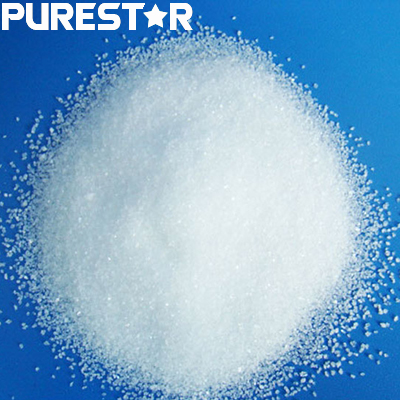- Min.Order :1 Metric Ton
- Purity: ≥99%
- Payment Terms : L/C,T/T,
Keywords
Sodium Saccharin Saccharin sodium 6155-57-3
Quick Details
- Appearance:White powder
- Application:food additive
- PackAge:25kg/fiber drum ,or 25kg/carton,or according to customers' requirement
- ProductionCapacity:100|Metric Ton|Month
- Storage:Sealed, in dark place
- Transportation:normal air,sea
Superiority:

Saccharin sodium
|
Product Name: |
Sodium saccharine |
|
Synonyms: |
1,2-benzisothiazol-3(2H)-one 1,1-dioxide, sodium salt; sodium 1,2-benzothiazol-3-olate 1,1-dioxide; 1,2-benzisothiazol-3(2H)-one, 1,1-dioxide, sodium salt (1:1); 1,2-benzisothiazol-3-olate 1,1-dioxide; Saccharine Sodium; Sodium Saccarrin; Saccharin sodium |
|
CAS RN.: |
128-44-9 |
|
EINECS: |
204-886-1 |
|
Molecular Weight: |
182.1771 |
|
Molecular Formula: |
C7H4NO3S |
Saccharin sodium, also known as o-benzoyl sulfonamide sodium, was developed in 1879. When the concentration is large, it will have a bitter taste. When heated under acidic conditions, the sweet taste disappears and bitter anthranilic acid can be formed. Because of its low calorie, not absorbed by the body, and can be discharged automatically with urine and feces, it is used as a sugar substitute for patients with obesity, hyperlipidemia, diabetes, and dental caries.
Sodium Saccharin was first produced in 1879 by Constantin Fahlberg, who was a chemist working on coal tar derivatives at the Johns Hopkins Univers Sodium saccharin.
Throughout his research he accidentally discovered Sodium saccharins intensely sweet flavor. In 1884, Fahlberg applied for patents in several countries as he described methods of producing this chemical, which he called saccharin.
It is white crystal or power with inodorous or slight sweetness, easily soluble in water.
Its sweetness is around 500 times sweeter than that of sugar.
It is stable in chemical property, without fermentation and change of color.
|
ITEM |
STANDARD |
|
Identification |
Positive |
|
Melting point of insolated saccharin ℃ |
226-230 |
|
Appearance |
White crystals |
|
Content % |
99.0-101.0 |
|
Loss on drying % |
≤ 15 |
|
Ammonium salts ppm |
≤ 25 |
|
Arsenic ppm |
≤ 3 |
|
Benzoate and salicylate |
No precipitate or violet color appears |
|
Heavy metals ppm |
≤ 10 |
|
Free acid or alkali |
Complies with BP /USP/DAB |
|
Readily carbonizable substances |
Not more intensely colored than reference |
|
P-tol sulfonamide |
≤ 10ppm |
|
O-tol sulfonamide |
≤ 10ppm |
|
Selenium ppm |
≤ 30 |
|
Related substance |
Complies with DAB |
|
Clarity and color solution |
Color less clear |
|
Organic volatiles |
Complies with BP |
|
PH value |
Complies with BP/USP |
|
Benzoic acid-sulfonamide |
≤ 25ppm |
To be used as a single sweetener, it tastes a little bitter. Normally it is recommended to be used along with other Sweeteners or acidity regulators, which could cover the bitter taste well.
Among all sweeteners in the current market, Sodium Saccharin takes the lowest unit cost calculated by unit sweetness.
So far, after used in food field for more than 100 years, sodium saccharin is proved to be safe for human consumption within its proper limit.
Sodium Saccharin only truly became popular during the sugar shortages throughout World War I, even though Sodium saccharin was launched to the public shortly after Sodium saccharins as food sweeteners discovery. Sodium saccharin became even more popular throughout the 1960s and 1970s .Sodium saccharinh dieters as sodium saccharin is a calorie and colesteral free sweetener. Sodium saccharin is commonly found in restaurants and grocery stores in pink pouches under the popular brand "SweetN Low". A number of beverages are sweetened Sodium saccharinh , the most popular being Coca-Cola, which was introduced in 1963 as a diet cola soft drink.
Application:
1. Used in food: cold drink, drink, jelly, ice lolly, pickles, candied fruit, pastries, cool fruit, protein, sugar, etc. Applied
in food industry and diabetes as a sweet food, commonly used synthetic sweet agent.
2. Used in feed additive, such as pig feed, sweet agent, etc.
3, Used in daily chemical industry: such as toothpaste, mouthwash, eye drops.
4. Used in electroplating industry: electroplating saccharin sodium is mainly used in electroplating nickel, as a brightener. Add a small amount of saccharin sodium, can improve the brightness and softness of plating nickel. General usage with 0.1-0.3 grams
per liter potion.
Details:
Q&A:
1.Are you a manufacturer or trade company
We have our own factory which located in Zhejiang,China.Meanwhile,we also have many parter factorier,so we can supply many kinds of relative products with very competitive price and good quality.
2.How to start an order
After negoation and communication about the price,quantity,incoterm,etc.,you give me the order contract with stamp,then I sealed it ,send back to you,also give you the proforma invoice,you can arrange the payment according the PI.
3.What’s your payment terms
If sample,small amount: T/T in advance, ,Paypal.
If commercial order ,big amount: T/T in advance,L/C at sight.
4.Can I get a free sample
If this product is not very expensive,and you demand a small sample,we can supply free sample,but not including the shipping cost,you can provide a freight collect account or arrange the shipping cost by Paypal/Westunion.
5.What's the lead time
Generally we send out your order ASAP after payment,normally
small quanitity,3-5days.
big quanitity with stock,5-7days,
if without stock,we have to calculate the production period,then give you the lead tme.
6.How do you ship the order normally
If less than 50kg,will be shipped by express,such as FEDEX,DHL.
If above 50kg,we can ship it by air or sea
For very large quantity,ship it by sea will be the best choice.
7.How do you ensure the quality of your products
Strict QC with 6 steps testing from raw material purchase to finished product.
Meanwhile,we will responsible for the goods quality after be sold.
You Might Also Like
Related Searches
About|Contact|Cas|Product Name|Molecular|Country|Encyclopedia
Message|New Cas|MSDS|Service|Advertisement|CAS DataBase|Article Data|Manufacturers | Chemical Catalog
©2008 LookChem.com,License: ICP
NO.:Zhejiang16009103
complaints:service@lookchem.com Desktop View